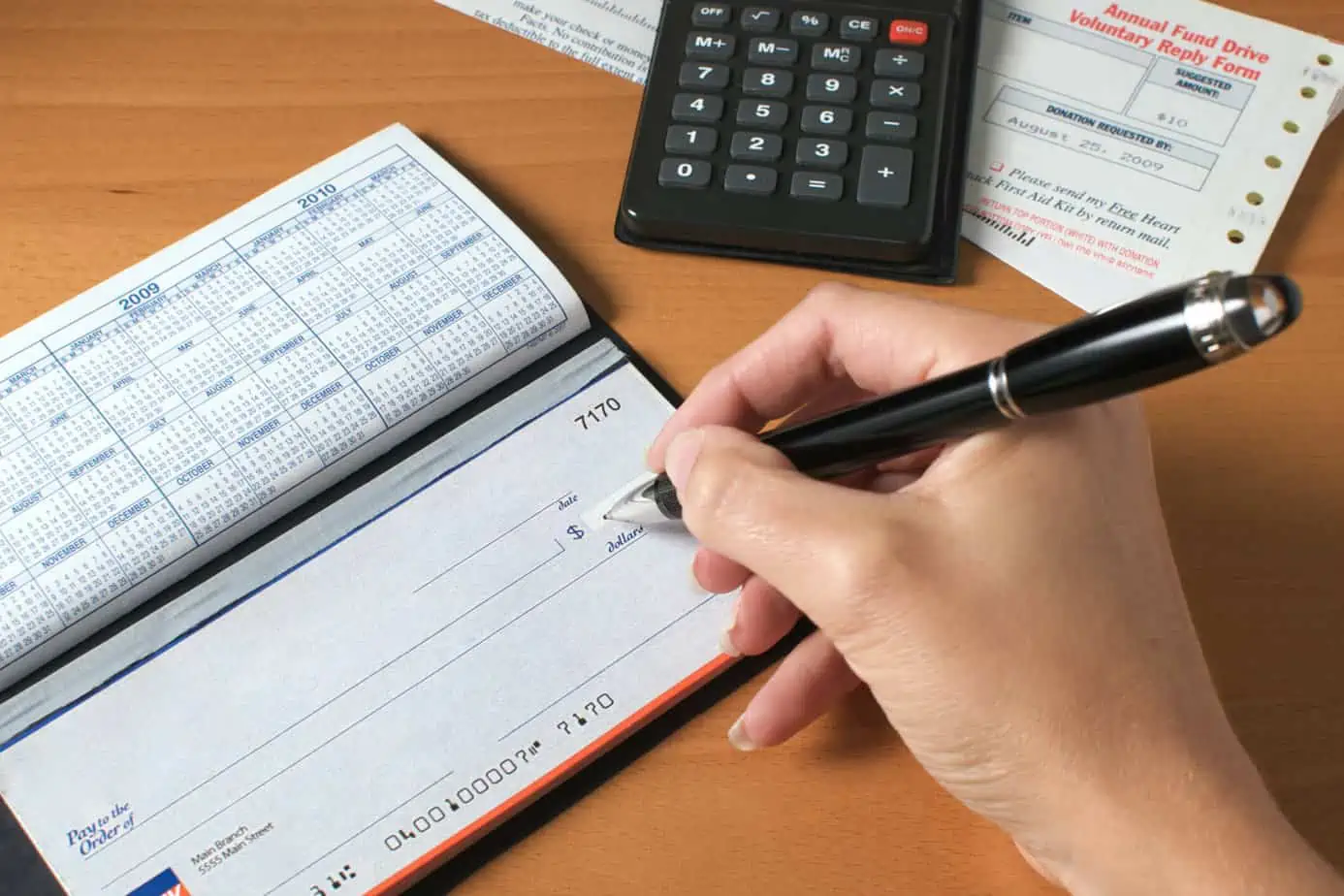Based on the findings of the Federal Reserve Payments Study (FRPS) issued on December 2021 there has been tremendous growth in customer payments via cards and ACH, and there has been a growth spurt experienced by novel payment methods such as digital wallets, P2P payment platforms, and contactless card transactions. Missing from this payments’ growth story are checks. It’s as if retailers are saying we no longer accept personal checks.
It does make sense why accepting checks for payment may be seen as cumbersome. Who would want to accept personal checks when there are so many innovative ways of securely and efficiently conducting transactions today? Below we explore in-depth some of the drawbacks of accepting checks for payment.
There are no guarantees
For a retailer, there is always a certain degree of risk when they accept personal checks. The majority of the checks are not certified, and even those that are certified can be faked by deceitful actors. Accepting checks for payment carries the chance that the retailer is giving away the product for free. There are no easy ways to quickly verify a sufficient bank balance to cover the check, so the risk of a bounced check is always present and can carry serious repercussions for businesses.
There is no security with checks
The problem of fake checks or defaulting on payment doesn’t arise with other forms of payments systems, such as cards or online transactions. Compared to the security around these payments systems, is it any wonder merchants retort to we no longer accept personal checks. Credit and debit cards equipped with EMV chips come with a complete nano-computer system implanted in that card. The chip cannot be tampered with or be cloned and today is the de facto security standard for almost all cards globally.
Then there is P2Pe which stands for point-to-point encryption. This technology allows businesses to accept magnetic stripe cards using point-to-point encryption.
For online payments, there are virtual terminal vendors that pride themselves on encryption as a key strength. They use the greatest security level available by utilizing Transport Layer Security (TLS) on a 2048-bit RSA key for encryption standards.
There are fixed fees
If a retailer does accept personal checks and one were to bounce due to nonsufficient balances, there are serious setbacks that the business suffers. The first is the charges levied by the bank for nonsufficient funds and can range anywhere from $27 to $35. A retailer may also be flagged for depositing bad checks by his bank and other third-party agencies to which banks report customers’ check history. This may increase the risk profile of the retailer and inhibit their ability to open a checking account in the future.
Slower
Even if a check is issued by a trustworthy client, it is still slower processing of getting paid compared to alternative methods of payment. There has been remarkable headway in receiving payments quickly directly into your account such as Next Day Payment, ACH Same Day Payment, and now Real-Time Payment. With a check, we’ve all heard, “it’s in the mail.” So it may be postmarked by your due date, but it may still take a few days to get to you. Then wait for 24 hours for the check to clear.
Prone to errors
Another problem with accepting checks is that they may be prone to human error. There are a host of problems that can arise with accepting personal checks. These errors can be basic such as inverted figures or still forgetfully writing the previous year in January, making the check more than 180 days old and one that cannot be honored. Oftentimes, the name of the payee may be misspelled or sent to the wrong address altogether.
It’s a hassle
Even when everything goes right with accepting checks for payment, it’s still a hassle. Someone still would have to complete your bank’s check deposit slip and go over to it to deposit. If your depository institution has the technology to let you deposit your checks via an image from your smartphone, you still have to perform that process. The funds being reconciled and directly deposited into an account are all automated by card payments.
Checks add to budgetary constraints
The accumulation of all these drawbacks for businesses accepting checks for payment is the strain that it adds to their budgets. Taking longer than expected to finally have the funds available in the account or not being able to collect any money at all due to bounced checks call dampen operations and budgets. The prospect of honest errors that may require follow-ups with your customers or a dedicated person to do bank runs all tie up staff resources. It can all be very costly for businesses that may already have razor-thin margins.
Checks are environmentally unfriendly
There has been a huge shift in transacting in an environmentally friendly manner. More conscious of environmental, social, and governance issues, many financial institutions are taking action to reduce the impact on the environment by incentivizing their customers to adopt payment methods other than checks. Cards are safer, more efficient, and conserve trees.
Many companies have outright stopped accepting personal checks. The predominant view is that cash, cards, or online transactions are safer and a more efficient form of payment method. Unlike checks, they reduce processing times to receive funds, don’t constrain budgets or staff resources, nor do they require any hassle around extensively depositing, reconciling, and accounting for payments.

